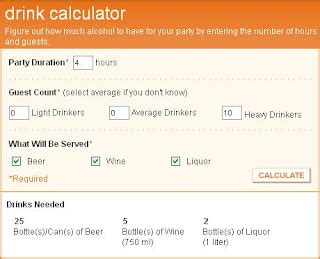No More Guessing Games: The Accurate Calculator – A Deep Dive into Precision Calculation
In today's world, accurate calculations are paramount. Whether you're balancing your budget, calculating project timelines, or performing complex scientific computations, precision is key. The "accurate calculator" isn't just a simple tool; it's a cornerstone of efficiency and reliable results. This article delves into the world of accurate calculators, exploring their features, functionalities, and the importance of choosing the right one for your needs. We'll also address common questions surrounding calculator accuracy and reliability.
What Makes a Calculator "Accurate"?
Accuracy in a calculator isn't simply about getting the right answer every time; it's about minimizing errors stemming from several sources. This involves:
-
Internal Precision: The calculator's internal processing and the number of digits it can handle significantly impact accuracy. Higher precision generally means fewer rounding errors.
-
Algorithm Efficiency: The algorithms used for calculations must be robust and designed to minimize errors, particularly in complex operations like trigonometric functions or exponents.
-
Input Accuracy: Human error is often the biggest source of inaccuracy. Double-checking inputs is crucial for reliable results. Some advanced calculators have features to help prevent input errors.
-
Display Accuracy: The clarity and size of the display influence readability and reduce the chance of misinterpreting results.
What Types of Accurate Calculators Exist?
There's a wide range of calculators, each designed for specific purposes:
-
Basic Calculators: These handle simple arithmetic operations (+, -, ×, ÷). While seemingly simple, the accuracy of even these depends on the quality of the manufacturing and the precision of the underlying components.
-
Scientific Calculators: These offer advanced functions like trigonometry, logarithms, exponents, and statistical calculations. Their accuracy is usually higher due to their more sophisticated internal workings.
-
Financial Calculators: Specifically designed for financial calculations, these often include functions for time value of money, amortization schedules, and other financial metrics. Accuracy in these is crucial for reliable financial planning.
-
Engineering Calculators: These cater to engineering applications, often incorporating features for unit conversions, complex number calculations, and specialized mathematical functions. Precision is paramount in this field.
How Can I Ensure Accuracy When Using a Calculator?
Beyond the calculator itself, several practices contribute to accuracy:
-
Double-Check Your Inputs: Always verify that you've entered the correct numbers and operators before pressing the equals sign.
-
Use Appropriate Calculators: Choose a calculator with the features and precision necessary for the task at hand. Don't use a basic calculator for complex scientific calculations.
-
Understand Rounding Errors: Be aware that rounding errors can occur, particularly in long calculations. Understanding how your calculator handles rounding is important.
-
Compare Results: Whenever possible, compare your calculator's results with those obtained using a different method or calculator to ensure consistency.
Frequently Asked Questions (FAQs)
Here are some common questions about accurate calculators, addressed to provide further clarity:
H2: What is the most accurate calculator available?
There's no single "most accurate" calculator. Accuracy depends on the type of calculation and the specific needs of the user. High-end scientific and engineering calculators typically offer superior precision compared to basic models. The best calculator is the one that best suits your needs and calculation requirements.
H2: Can all calculators be equally accurate?
No, calculators are not equally accurate. The accuracy depends on factors like the internal processing, the algorithms used, the number of digits displayed, and the quality of the components. Higher-end calculators generally offer greater precision.
H2: How do I know if my calculator is accurate?
You can test your calculator's accuracy by performing simple calculations with known results. For example, try adding or multiplying simple numbers and compare the results to your manual calculations. For more complex calculations, you can compare results with online calculators or other computational tools.
H2: Are online calculators as accurate as physical calculators?
The accuracy of online calculators varies depending on the programming and the algorithms used. Reputable online calculators often use robust algorithms and should provide accurate results for most calculations. However, it's always good practice to compare results across multiple sources.
In conclusion, choosing and using an accurate calculator is crucial for ensuring the reliability of your calculations. By understanding the factors influencing accuracy and following best practices, you can eliminate guesswork and ensure the precision necessary for any task.

